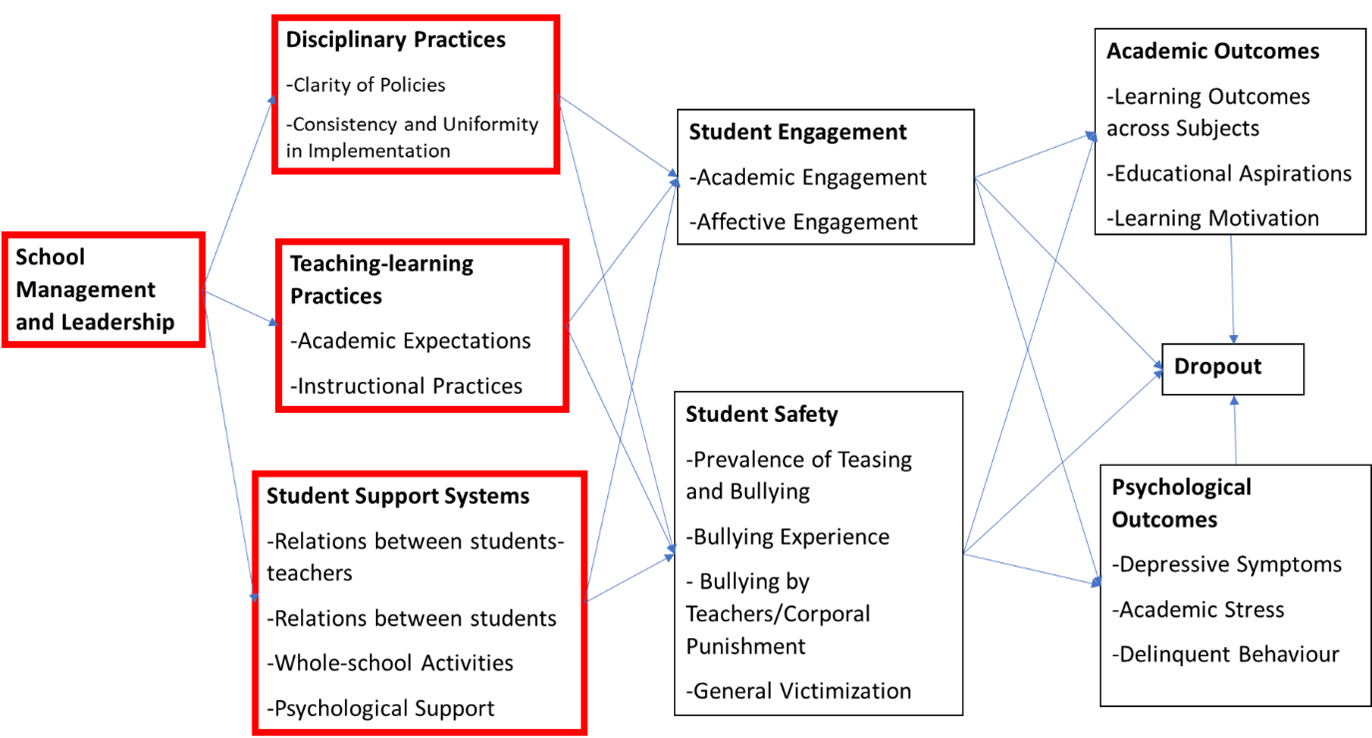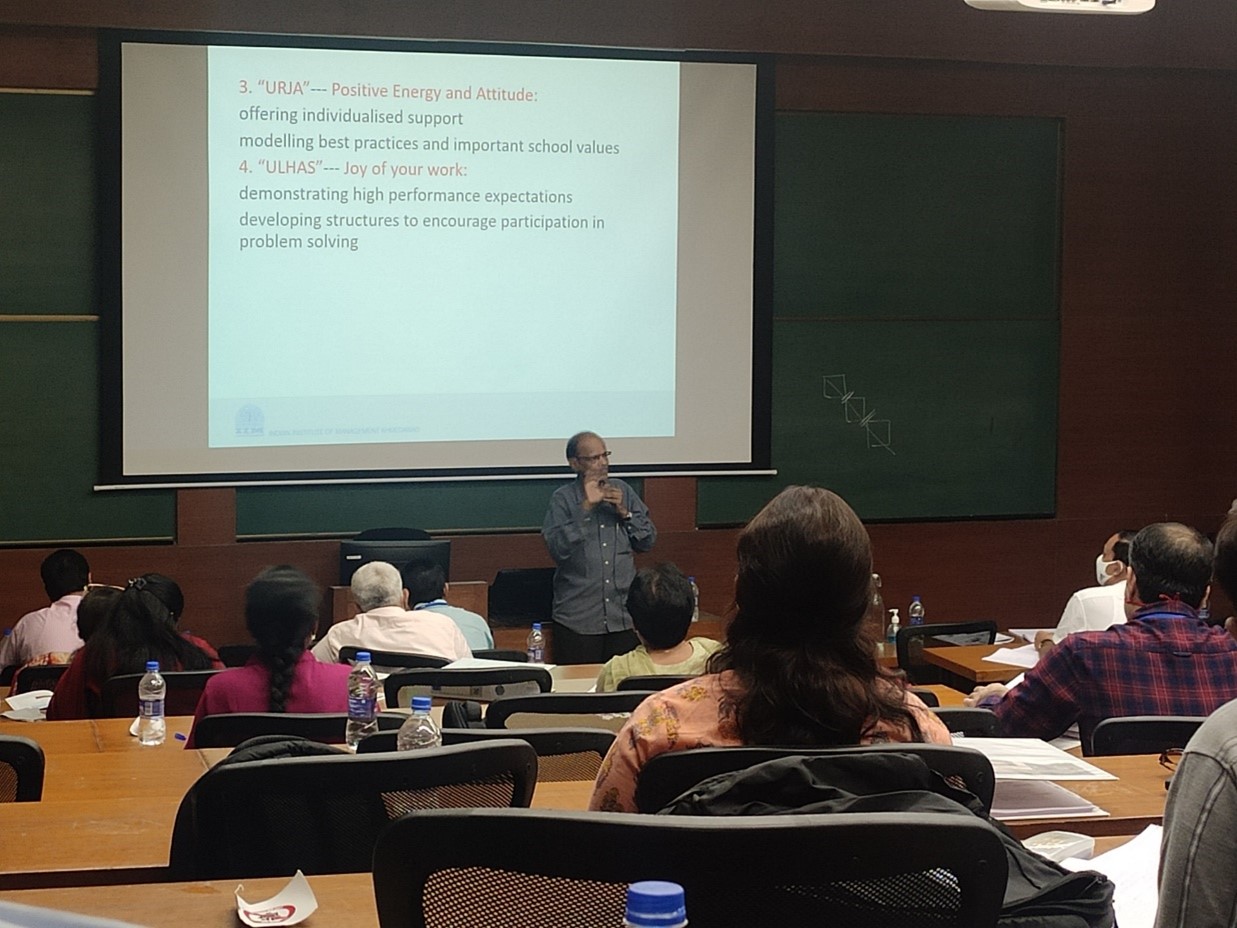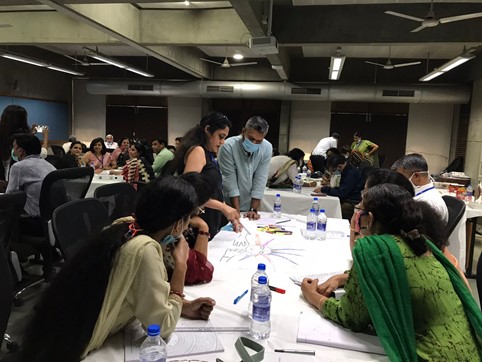In November 2016, the Government of Delhi reached out to us at the Ravi J. Matthai Centre for Educational Innovation (RJMCEI) for designing and conducting a 5-day leadership programme for their heads of schools (HoSs). Working with the government schools was a great opportunity, building upon our experience of the school leadership certification programme (open enrolment) we have been offering every year for more than two decades. However, we took our time to respond. We visited various Delhi schools. We also interacted with HoSs, teachers, students, teacher educators at the SCERT (State Council for Educational Research and Training), officers, and district and state administrators. Within RJMCEI, we pondered over these questions: (1) What is happening in Delhi's school education? (2) What interventions would be necessary for HoSs? (3) Would our 5-day programme add any value to Delhi schools?
Our experience has yielded a few insights into the effectiveness of short-duration programmes. If participants are eager and take ownership of their learning, a well-designed programme could add a lot of value. However, if they are unwilling to learn and participate only because their authorities compel them, even a well-designed programme could fall flat. In the latter scenario, the impact of any meaningful programme remains a mirage.
In our case, Delhi's education ministry would sponsor these programmes. It was a top-down initiative. We needed to understand whether HoSs were willing to participate in such a short-duration programme. Our fieldwork clarified that the Government of Delhi was serious about transforming its school education system. We could see three broad areas where they were channelising their energies: (1) infrastructural development, (2) community engagement and (3) capacity building. The government had numerous partnerships with various agencies depending upon the requirement of expertise. Given the high reputation of our school leadership certification programme, they wanted to onboard us for the professional development of HoSs. We could certainly see things moving on the infrastructure and community engagement fronts. Systems were in place for the in-service professional development of teachers as well. During our school visits, most HoSs stated that they were undergoing some important transformation and acknowledged a need for some inputs and hand-holding. When we understood the bigger picture and where we fit in, we took the leap of faith and said a "Yes". It was decided that about 1,050 HoSs in batches of 50 would come to IIMA for a 5-day certificate programme designed for Delhi schools. Since mid-2017 - when the first batch came to IIMA - we have been hosting about five to eight batches of HoSs every year.
Our initial programmes focused primarily on various dimensions of school leadership and management. Given that the entire system was undergoing significant transformations, HoSs were often finding themselves overwhelmed. The traditional role of HoS as a teacher with some additional administrative tasks was no longer valid, but most HoSs could not find time or energy to reflect upon what was happening around them or to them. "Feels like we're always driven by circumstances and in some firefighting mode" was a commonly shared expression. Our programme targeted this major learning - what should be the role of HoS in such a dynamic educational context and how to manage change effectively.
Delhi schools have come a long way today. The enrolments have shot up almost in all schools, and so have the board exams' pass rates. Note that many initiatives have been taken simultaneously at various levels, and it has been impossible to unravel the causal effects of our programme. In any case, it has been a privilege to contribute to the development of HoSs.
But, like everything else, the COVID pandemic ruptured this partnership. The programme was put on hold, and the momentum faded away to some extent. After a few months, we switched to the online mode and resumed the programme. However, the context in which schools functioned had changed. During the COVID or in the post-COVID scenario, newer problems surfaced and the priorities of educational practitioners changed. We clearly needed to redesign our programme.
Moreover, we were concerned about Delhi hitting the plateau on learning outcomes. Pass rates were already nearing the high 90s for many schools, and statistically, not much scope remained for improving those further. In a top-down structure, HoSs would tend to focus on the outcomes that the state administrators pay attention to. If the discourse remains around enrolment rates, dropout rates, midday meals, attendance and pass rates, HoSs will start believing that they have done their part once the school shows a positive trend on those outcomes. For functional schools, this could create a plateau in learning outcomes because the definition of school success is limited to those indicators. We certainly needed to highlight this problem and assist HoSs in cracking this problem.
Our redesigned programme focused on these themes: (1) What should be the definition of student success, and what role can HoSs play? (2) How to scale up innovations happening at the individual level by teachers and students? (3) How to work with all stakeholders to establish and maintain a positive social-emotional-academic climate in schools? Employing the school climate theoretical framework that we have developed within RJMCEI (Figure 1), we designed sessions primarily on four dimensions (in the red box): (1) school leadership and management, (2) teaching-learning practices, (3) disciplinary practice and (4) student support systems. HoSs have direct control over all of these four dimensions.

Figure 1: School Climate Theoretical Framework developed by RJMCEI
In October 2021, two batches of HoSs participated in this redesigned programme. From the first session, HoSs knew that their next 5 days would be highly structured and demanding but incredibly supportive for learning. Both batches responded with amazing zeal for learning and personal development. They enthusiastically participated and co-constructed knowledge.
The sessions focused on these topics:
- Effective school leadership behaviour and encouraging innovative thinking
- Developing social-emotional-academic climate
- Data-driven decision-making for improving teaching-learning
- Performance management in schools
- Panel discussion: Leadership challenges for the future
- School discipline through restorative practices and emotional regulation
- Driving change through gamification
- Managing self-limiting beliefs and mindfulness leadership
- Decision-making and managing change in schools


As the topics suggest, we increased the focus on emotional and psychological aspects of school leadership. For designing any meaningful educational experiences, especially in the post-COVID scenario, the biggest challenges for HoSs would be to provide social-emotional support to the entire school community (i.e., students, teachers, staff and other stakeholders) while maintaining their own well-being. In addition, we introduced new topics like gamification and its implementation for school activities. HoSs were given modules on non-academic outcomes (e.g., sensitising students on gender equity, positive social interactions and bullying prevention). We formed eight teams and challenged them to create gamified learning experiences for their students using the modules. To our surprise, most teams employed the gamification elements meaningfully, which could boost student engagement. This is vital because, for HoSs to continue their journey for enriching students' learning experience, there have been top-down initiatives like Happiness, Entrepreneurship or Deshbhakti curriculum in Delhi. If HoSs and their teams could develop and implement gamified experiences using such content, students' learning and engagement could outrun the expectations.
Importantly, we retained some of the core concepts of leadership and management in schools. To effectively improve students' educational experiences, HoSs need to aim beyond pass, enrolment and dropout rates. They would need to work with their teams to prevent bullying, reduce truancy and delinquency, and increase educational-career aspirations and learning motivation while engaging all students academically and emotionally. The list is endless. HoSs may also need to check on dysfunctional taps and lights, and submit responses to numerous RTIs and circulars from various authorities. But what sets HoSs apart from any other organisation leader is that they will only realise their true impact on the lives of their core stakeholders not concurrently but after a decade when today's children will have become adult citizens. Clearly, HoSs have a huge responsibility, and it has been a privilege to work with them for nurturing our future generation.

Figure 1: School Climate Theoretical Framework developed by RJMCEI


About The Author
Prof. Kathan Shukla
Kathan Shukla (kathans@iima.ac.in) is an assistant professor in the Ravi J. Matthai Centre for Educational Innovation.